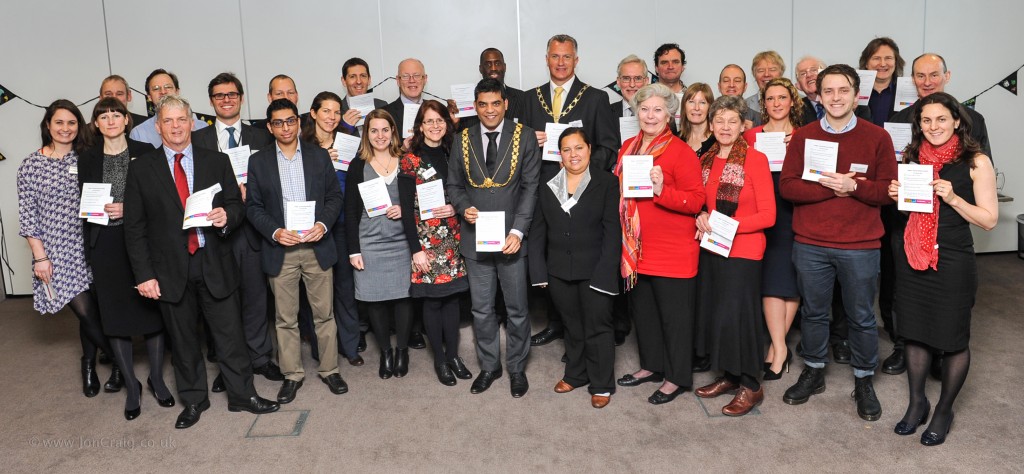Buying Fairtrade products can be a tiny decision for a business yet it can have a huge impact on people’s lives.
This message was brought home to West businesses on Monday as Fairtrade Fortnight got underway with a launch breakfast at Bristol law firm Burges Salmon.
Margarita Espinoza, a Fairtrade coffee producer from Nicaragua who is visiting the region to speak at a number of events during the fortnight, outlined to business leaders how becoming involved in Fairtrade had changed her life and those of her fellow growers, their families and the wider community in their remote village.
And she told guests at the event: “When you buy Fairtrade products you help me, my family and whole communities flourish and grow.”
Selling to Fairtrade had not only allowed her cooperative to buy new machinery and guarantee a minimum price for their coffee, but had also paid for school equipment, health screening programmes, domestic violence education and even improved the main road into the village, some 27km from the provincial city of Jinotega.
It had helped her overcome a dramatic fall in the world price of coffee – from 260 US cents a pound to 140 cents in six years – and replant after her plot was devastated by la roya – the coffee rust disease.
“I lost 40% of my produce last year and I had to replace the plants,” Margarita said. “Finance for this is very, very difficult and when you do replace them it is four years before they produce a crop.”
Supplying Fairtrade has also led to greater equality. Of the 650 members of the Soppexcca Co-operative, 200 are women and 31 of these are in leadership and/or decision-making roles.
The women growers in the cooperative now produce Las Hermanas (The Sisters) coffee – the first packaged coffee produced and marketed by women to the international market.
“It has given us visibility,” said Margarita. “It’s all part of the drive for real equality between men and women.”
She said the guaranteed minimum price was vital. “It supports us,” she said. “It’s a premium that enables us to keep our schools and environmental programmes operating.”
Burges Salmon partner Alan Barr told the event that he first encountered Fairtrade in 1997 when a young girl had spoken passionately about it at the Sunday school where he taught.
“I thought that it was a quaint idea at the time but I was business-like and cynical and I couldn’t see how it could work economically,” he said.
“I was wrong. Fairtrade isn’t just fair, it’s right. It’s good for business and it’s easy.”
He said it made little difference to a business if it – or its caterers and suppliers – used stocked Fairtrade produce, as Burges Salmon did.
“The difference for us is tiny but for people like Margarita it’s huge. The big thing now is to encourage other businesses to use Fairtrade,” he said.
Fairtrade had grown by 50% a year since 1997 and was now worth £140m a year, he said, but added: “There is still a long way to go.”
Guests at the breakfast made a total of 96 pledges to increase sales and awareness of Fairtrade in their businesses and organisations.
Margarita will be speaking in schools and events in the city throughout Fairtrade Fortnight. For full details www.bristolfairtrade.org.uk
Pictured: Margarita (centre) with business leaders and their Fairtrade pledges. Photos by Jon Craig www.joncraig.co.uk/



















